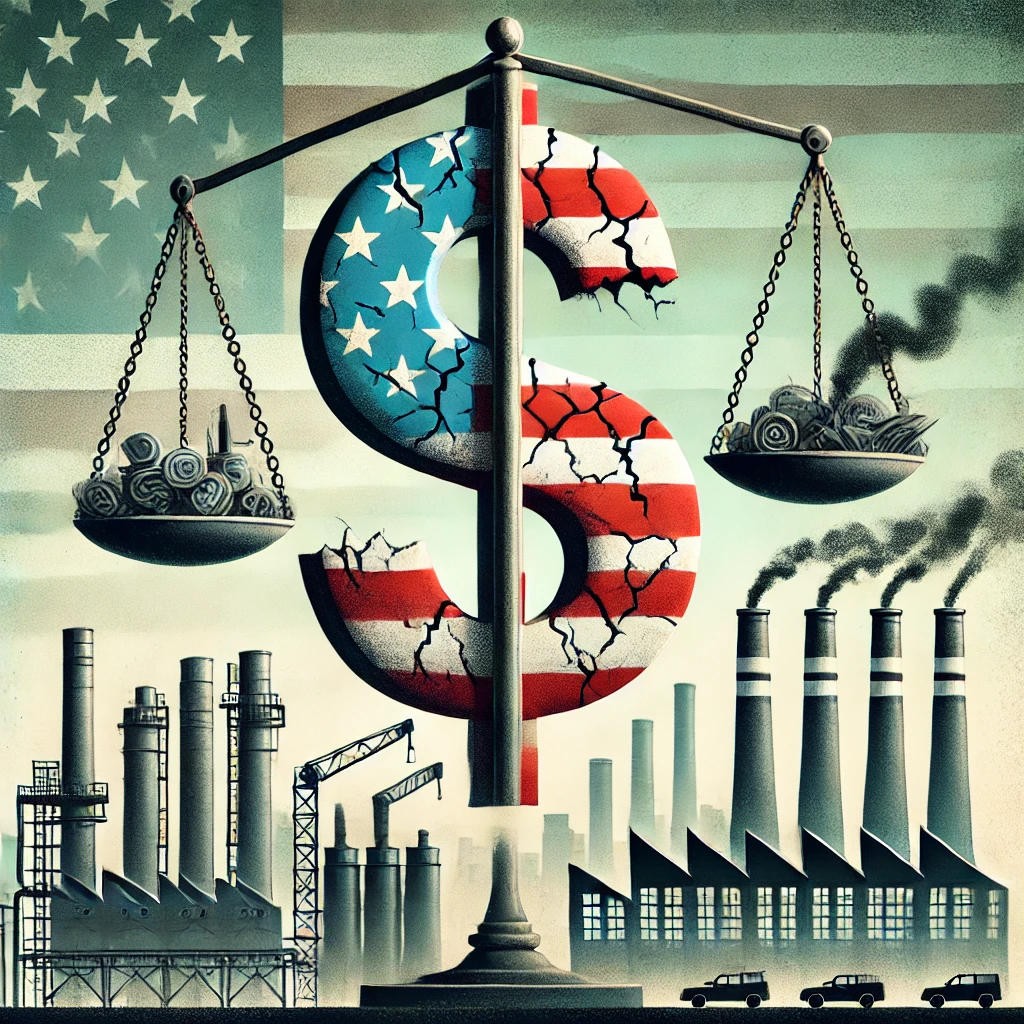Impact of Recent Economic Changes in the United States

The United States economy is currently navigating a series of substantial changes introduced by the new administration, with many of these shifts appearing more harmful than beneficial. While the intention behind the recent economic reforms was to strengthen domestic production and government revenue, the practical outcomes have sparked concerns across various sectors.
Effects of High Tariffs on Imported Goods
One of the most impactful measures has been the introduction of high tariffs on imported goods from key trading partners. These tariffs were intended to bolster domestic manufacturing by encouraging consumers to buy American-made products. However, in practice, this has led to significant inflationary pressures, driving up costs for American consumers on everyday goods, and causing instability in the stock market as investors become increasingly concerned about profitability and market sustainability.
Tariffs on Input Materials and Manufacturing Costs
Additionally, tariffs imposed on critical input materials such as steel and aluminum have substantially increased manufacturing costs. The higher costs have led to job losses in industries dependent on these materials, outweighing the employment gains from companies relocating operations back to the United States. This imbalance highlights the unintended negative consequences of tariff policies on domestic employment.
Impact of Retaliatory Measures
Furthermore, retaliatory measures from affected countries have compounded economic woes by sharply reducing U.S. exports. Many American industries dependent on international trade, such as agriculture, automotive, and technology, are suffering declining revenues, which risks long-term damage to global market positions previously held by American companies. Tourism, traditionally a major economic driver, has similarly declined as international relations grow strained, leading to fewer tourists visiting the United States and negatively affecting service industries.
Government Worker Firings and Unemployment
The economic policy shift involving extensive firings of government workers has also exacerbated unemployment rates. The public sector job losses have had a ripple effect, reducing overall consumer spending and placing additional strain on unemployment support systems. The corresponding economic contraction, due to reduced spending power, undermines growth efforts in other sectors as consumer confidence wanes.
Reductions in Federal Agencies
Additionally, sweeping cuts to federal agencies have led to reductions in critical public services, adversely affecting not only the economy but also public welfare. These agencies often provided essential regulatory oversight, infrastructure development, and research funding, all foundational for sustained economic growth and innovation.
Mass Deportation and Labor Shortages
Another contentious policy has been the mass deportation of migrant workers, a decision that aimed to open job opportunities for American citizens. However, sectors heavily reliant on immigrant labor—such as agriculture, hospitality, construction, and healthcare—have struggled to fill vacant positions, as these roles often require specialized skills, extensive physical labor, or willingness to work in remote or challenging environments. This shortage of labor has slowed economic productivity and increased operational costs for businesses.
Limited Positive Outcomes
Despite these widespread economic concerns, there have been some positive outcomes. Tariffs have temporarily increased government revenue, providing additional funds which, if appropriately managed, could theoretically be reinvested into infrastructure and domestic programs. Additionally, certain companies have relocated manufacturing operations back to the United States, thereby creating new employment opportunities in specific localities. These positives, however, seem limited compared to the broader negative economic impacts experienced across the nation.
Conclusion
In evaluating these sweeping policy changes, it appears that their economic cost far outweighs the limited benefits. Long-term economic health requires stable international relations, robust trade, steady employment, and sustainable inflation rates. Thus far, these policies have undermined several of these critical pillars. As such, policymakers must reconsider current strategies to foster a more balanced, productive, and sustainable economy moving forward.
"The first lesson of economics is scarcity: there is never enough of anything to satisfy all those who want it. The first lesson of politics is to disregard the first lesson of economics." — Thomas Sowell
